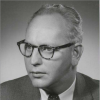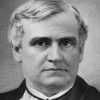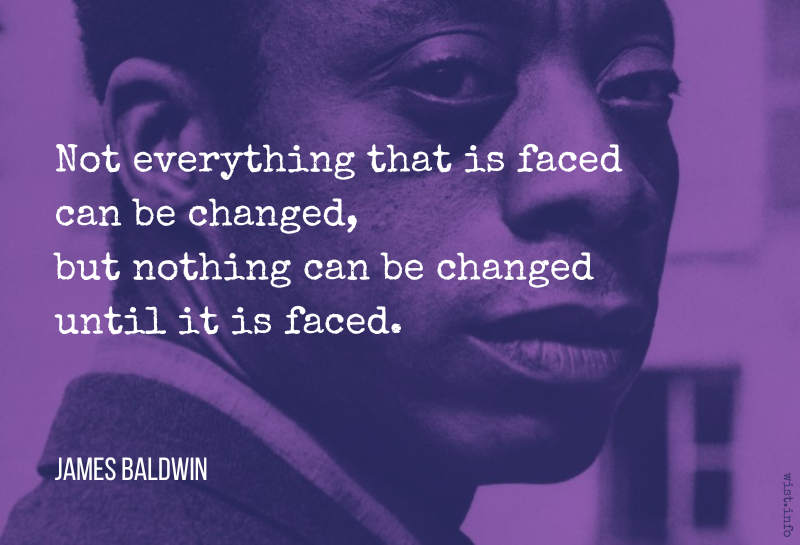To do good to mankind is the chivalrous plan,
And is always as nobly requited;
Then battle for freedom wherever you can.
And, if not shot or hang’d, you’ll get knighted.
Quotations about:
recognition
Note not all quotations have been tagged, so Search may find additional quotes on this topic.
The noble-minded worry about their lack of ability, not about people’s failure to recognize their ability.
[君子病無能焉、不病人之不己知也]
Confucius (c. 551- c. 479 BC) Chinese philosopher, sage, politician [孔夫子 (Kǒng Fūzǐ, K'ung Fu-tzu, K'ung Fu Tse), 孔子 (Kǒngzǐ, Chungni), 孔丘 (Kǒng Qiū, K'ung Ch'iu)]
The Analects [論語, 论语, Lúnyǔ], Book 15, verse 19 (15.19) (6th C. BC – AD 3rd C.) [tr. Hinton (1998)]
(Source)
(Source (Chinese)). See also 1.16, 4.14, 14.30. Legge and other early translators numbered this, as shown below, 15.18. Alternate translations:
The superior man is distressed by his want of ability. He is not distressed by men's not knowing him.
[tr. Legge (1861), 15.18]
The trouble of the superior man will be his own want of ability: it will be no trouble to him that others do not know him.
[tr. Jennings (1895), 15.18]
A wise and good man should be distressed that he has no ability ; he should never be distressed that men do not take notice of him.
[tr. Ku Hung-Ming (1898), 15.18]
The noble man is pained over his own incompetency, he is not pained that others ignore him.
[tr. Soothill (1910), 15.18]
The proper man is irritated by his incapacities, not irritated by other people not recognizing him.
[tr. Pound (1933), 15.18]
A gentleman is distressed by his own lack of capacity; he is never distressed at the failure of others to recognize his merits.
[tr. Waley (1938), 15.18]
The perfect gentleman complains about his own inabilities; not about people’s ignorance of himself.
[tr. Ware (1950)]
The gentleman is troubled by his own lack of ability, not by the failure of others to appreciate him.
[tr. Lau (1979)]
The gentleman is pained at the lack of ability within himself; he is not pained at the fact that others do not appreciate him.
[tr. Dawson (1993)]
A gentleman resents his incompetence; he does not resent his obscurity.
[tr. Leys (1997)]
The gentleman worries about his incapability; he does not worry about men not knowing him.
[tr. Huang (1997)]
A gentleman worries about that he does not have the ability, does not worry about that others do not understand him.
[tr. Cai/Yu (1998), #403]
Exemplary persons (junzi) are distressed by their own lack of ability, not by the failure of others to acknowledge them.
[tr. Ames/Rosemont (1998)]
The gentleman takes it as a fault if he is incapable of something; he does not take it as a fault if others do not know him.
[tr. Brooks/Brooks (1998)]
The gentleman is distressed by his own inability, rather than the failure of others to recognize him.
[tr. Slingerland (2003)]
The gentleman is troubled by his own lack of ability. He is not troubled by the fact that others do not understand him.
[tr. Watson (2007)]
The gentleman is worried about his own lack of ability and not about the fact that others do not appreciate him.
[tr. Chin (2014)]
A Jun Zi is disappointed about his own incompetency. He is not distressed that he is not known by others.
[tr. Li (2020)]
Don’t worry about not being recognized by others; worry about not having any reason for them to recognize you.
[不患人之不己知、患其不能也]
Confucius (c. 551- c. 479 BC) Chinese philosopher, sage, politician [孔夫子 (Kǒng Fūzǐ, K'ung Fu-tzu, K'ung Fu Tse), 孔子 (Kǒngzǐ, Chungni), 孔丘 (Kǒng Qiū, K'ung Ch'iu)]
The Analects [論語, 论语, Lúnyǔ], Book 14, verse 30 (14.30) (6th C. BC – AD 3rd C.) [tr. Ames/Rosemont (1998)]
(Source)
(Source (Chinese)). Originally numbered by Legge as 14.32, but identified in modern translations as 14.30; the distinction is noted below. See also 1.16, 4.14, 15.19. Alternate translations:
I will not be concerned at men's not knowing me; I will be concerned at my own want of ability.
[tr. Legge (1861), 14.32]
My great concern is, not that men do not know me, but that they cannot.
[tr. Jennings (1895), 14.32; Jennings notes the unclear phrase could also mean "but that here is want of ability (in me to know them)."]
Be not concerned that men do not know you =; be concerned that you have no ability.
[tr. Ku Hung-Ming (1898), 14.32]
(A wise man) is not distressed that people do not know him, he is distressed at his own lack of ability.
[tr. Soothill (1910), 14.32]
Not worried that others don't know me, worried by my incapacities.
[tr. Pound (1933), 14.32]
(A gentleman) does not grieve that people do not recognize his merits; he grieves at his own incapacities.
[tr. Waley (1938), 14.32]
Be not concerned over men’s not knowing of you; be concerned rather over your inabilities.
[tr. Ware (1950)]
It is not the failure of others to appreciate your abilities that should trouble you, but rather your own lack of them.
[tr. Lau (1979), 14.30]
One does not worry about the fact that other people do not appreciate one. One worries about the fact that one is incapable.
[tr. Dawson (1993), 14.30]
It is not your obscurity that should distress you, but your incompetence.
[tr. Leys (1997), 14.30]
Do not worry about men not knowing you; rather, worry about your incapability.
[tr. Huang (1997), 14.30]
I do not worry about that others do not understand me, just worry about that i have no talent.
[tr. Cai/Yu (1998), 14.30, #370]
He does not worry about others not knowing him; he worries about whether he is capable.
[tr. Brooks/Brooks (1998), 14:30; they consider this a later interpolation, with 4:14 being the actual Confucian saying.]
Don't grieve when people fail to recognize your ability. Grieve for your lack of ability instead.
[tr. Hinton (1998), 14.30]
Do not worry that you are not recognized by others; worry rather that you yourself lack ability.
[tr. Slingerland (2003), 14.30]
Don’t worry about others’ not understanding you. Worry about your own lack of ability.
[tr. Watson (2007), 14.30]
Do not worry that other people do not know you. Be concerned about your own lack of ability.
[tr. Chin (2014), 14.30]
I am not concerned with not being known by others. I am concerned with my lack of ability.
[tr. Li (2020), 14.30]
I’d like to write something that my peers, my colleagues, my fellow writers would find a source of respect. I think I’d rather win, for example, a Writers Guild award than almost anything on earth. And the few nominations I’ve had with the guild, and the few awards I’ve had, represented to me a far more legitimate concrete achievement than anything. Emmys, for example, most of that’s bullshit. Oscars are even worse. We have a strange, terrible affliction in this town. Everybody walks around bent-backed from slapping each other on the backs so much. It looks like arthritis but it isn’t. It’s hunger for recognition. And it’s sort of like, well, I’ll scratch you this time if you’ll scratch me next time. That kind of thing.
Rod Serling (1924-1975) American screenwriter, playwright, television producer, narrator
“Rod Serling: The Facts of Life,” interview by Linda Brevelle (4 Mar 1975)
(Source)
No matter what a man or a woman does for a living, it is part of the human mechanism to expect and need recognition of some sort. Beyond the security and the paycheck is the palpable hunger of a person to have an identity of his own.
Rod Serling (1924-1975) American screenwriter, playwright, television producer, narrator
Patterns, Introduction (1957)
(Source)
What a comfort one familiar face is in a howling wilderness of strangers!
EXPERT, n. A modern seer, often self-styled, whose pronouncements are received as if emanating from an oracle. A “recognized expert” is one whose pronouncements are closest to conventional wisdom.
About six months ago, he stopped recognizing me. Now I no longer recognize him.
If I should labor through daylight and dark,
Consecrate, valorous, serious, true,
Then on the world I may blazon my mark;
And what if I don’t, and what if I do?
Do not be chary of appreciation. Hearts are unconsciously hungry for it.
Phillips Brooks (1835-1893) American clergyman, hymnist
“Destruction and Fulfilment,” Sermon 12, Twenty Sermons, 4th Series (1887)
(Source)
Sermon on Matt. 17.
Success, recognition, and conformity are the bywords of the modern world where everyone seems to crave the anesthetizing security of being identified with the majority.
Martin Luther King, Jr. (1929-1968) American clergyman, civil rights leader, social activist, preacher
Strength to Love, ch. 2 “Transformed Non-Conformist” (1963)
(Source)
Applause is the spur of noble minds, the end and aim of weak ones.
Charles Caleb "C. C." Colton (1780-1832) English cleric, writer, aphorist
Lacon, vol. 1, #422 (1820)
(Source)
Not everything that is faced can be changed, but nothing can be changed until it is faced.
James Baldwin (1924-1987) American novelist, playwright, activist
“As Much Truth as One Can Bear,” New York Times Book Review (14 Jan 1962)
(Source)
















